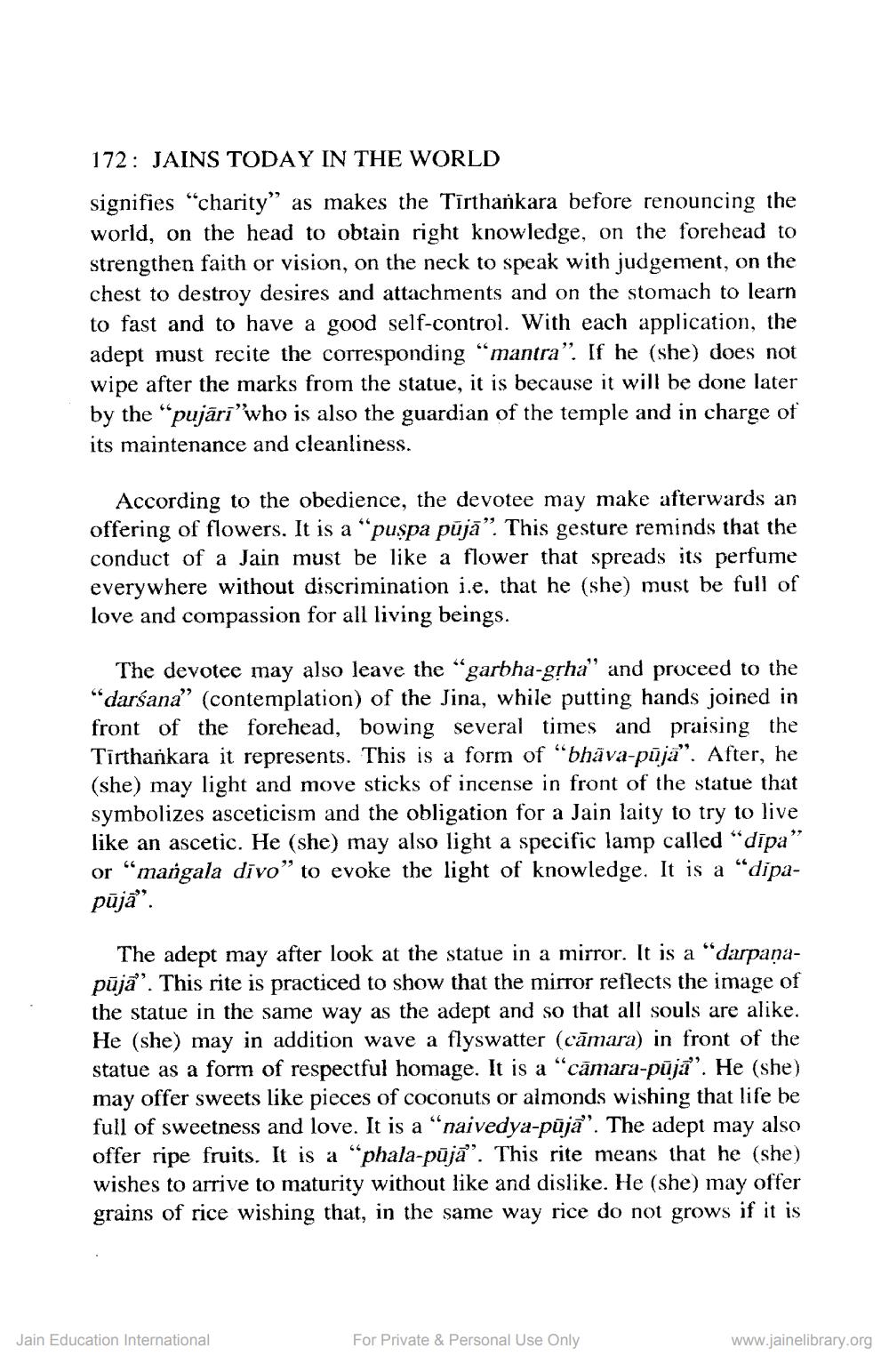________________
172: JAINS TODAY IN THE WORLD signifies "charity” as makes the Tīrthankara before renouncing the world, on the head to obtain right knowledge, on the forehead to strengthen faith or vision, on the neck to speak with judgement, on the chest to destroy desires and attachments and on the stomach to learn to fast and to have a good self-control. With each application, the adept must recite the corresponding “mantra”. If he (she) does not wipe after the marks from the statue, it is because it will be done later by the “pujārī”who is also the guardian of the temple and in charge of its maintenance and cleanliness.
According to the obedience, the devotee may make afterwards an offering of flowers. It is a “puspa pūjā”. This gesture reminds that the conduct of a Jain must be like a flower that spreads its perfume everywhere without discrimination i.e. that he (she) must be full of love and compassion for all living beings.
The devotee may also leave the “garbha-grha" and proceed to the “darśana” (contemplation) of the Jina, while putting hands joined in front of the forehead, bowing several times and praising the Tīrthankara it represents. This is a form of “bhāva-pāja”. After, he (she) may light and move sticks of incense in front of the statue that symbolizes asceticism and the obligation for a Jain laity to try to live like an ascetic. He (she) may also light a specific lamp called "dipa" or “mangala divo” to evoke the light of knowledge. It is a “dipa
pūja".
The adept may after look at the statue in a mirror. It is a "darpaņapāja”. This rite is practiced to show that the mirror reflects the image of the statue in the same way as the adept and so that all souls are alike. He (she) may in addition wave a flyswatter (cāmara) in front of the statue as a form of respectful homage. It is a “camara-pūjā”. He (she) may offer sweets like pieces of coconuts or almonds wishing that life be full of sweetness and love. It is a "naivedya-pūja". The adept may also offer ripe fruits. It is a "phala-pāja”. This rite means that he (she) wishes to arrive to maturity without like and dislike. He (she) may offer grains of rice wishing that, in the same way rice do not grows if it is
Jain Education International
For Private & Personal Use Only
www.jainelibrary.org




